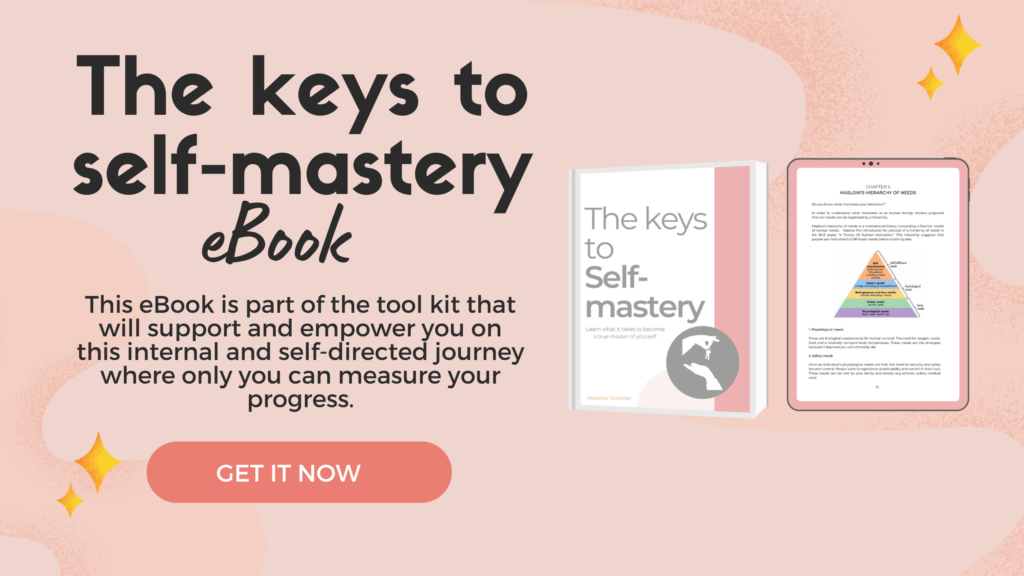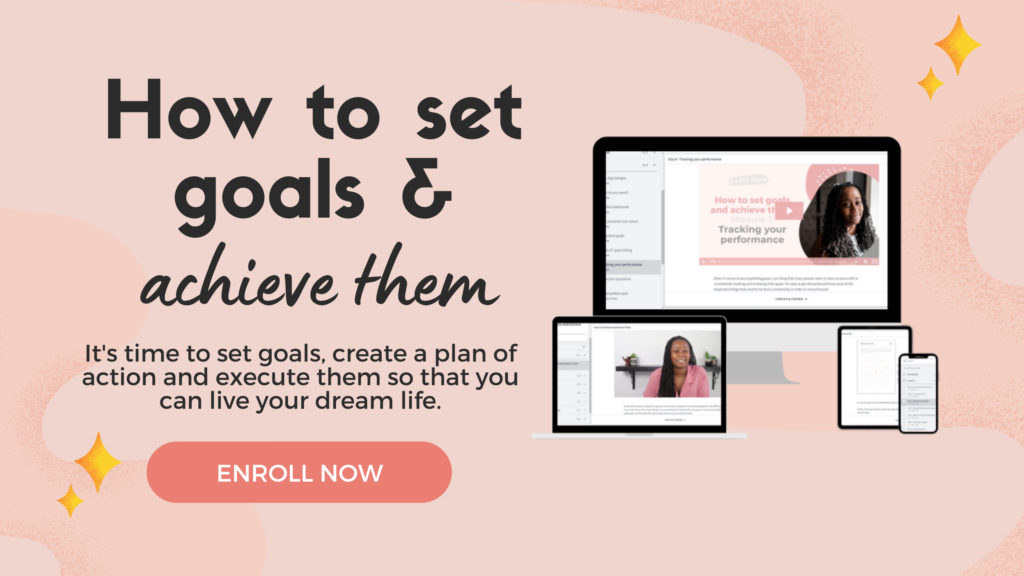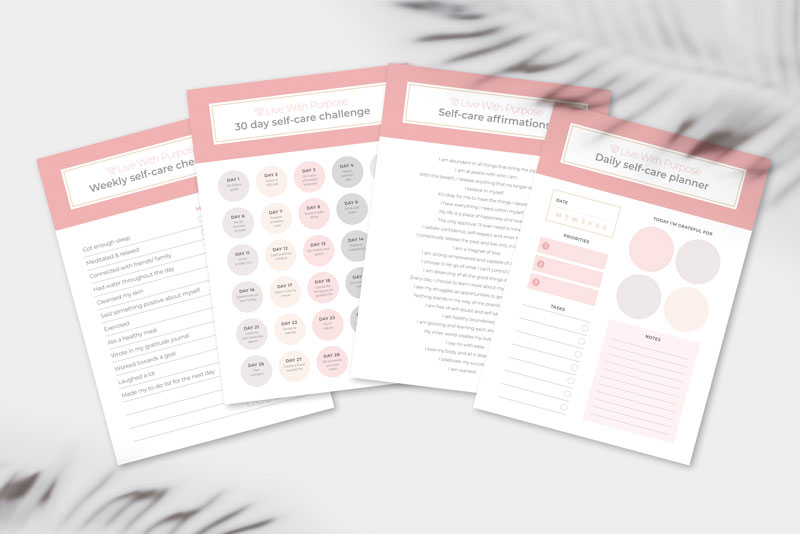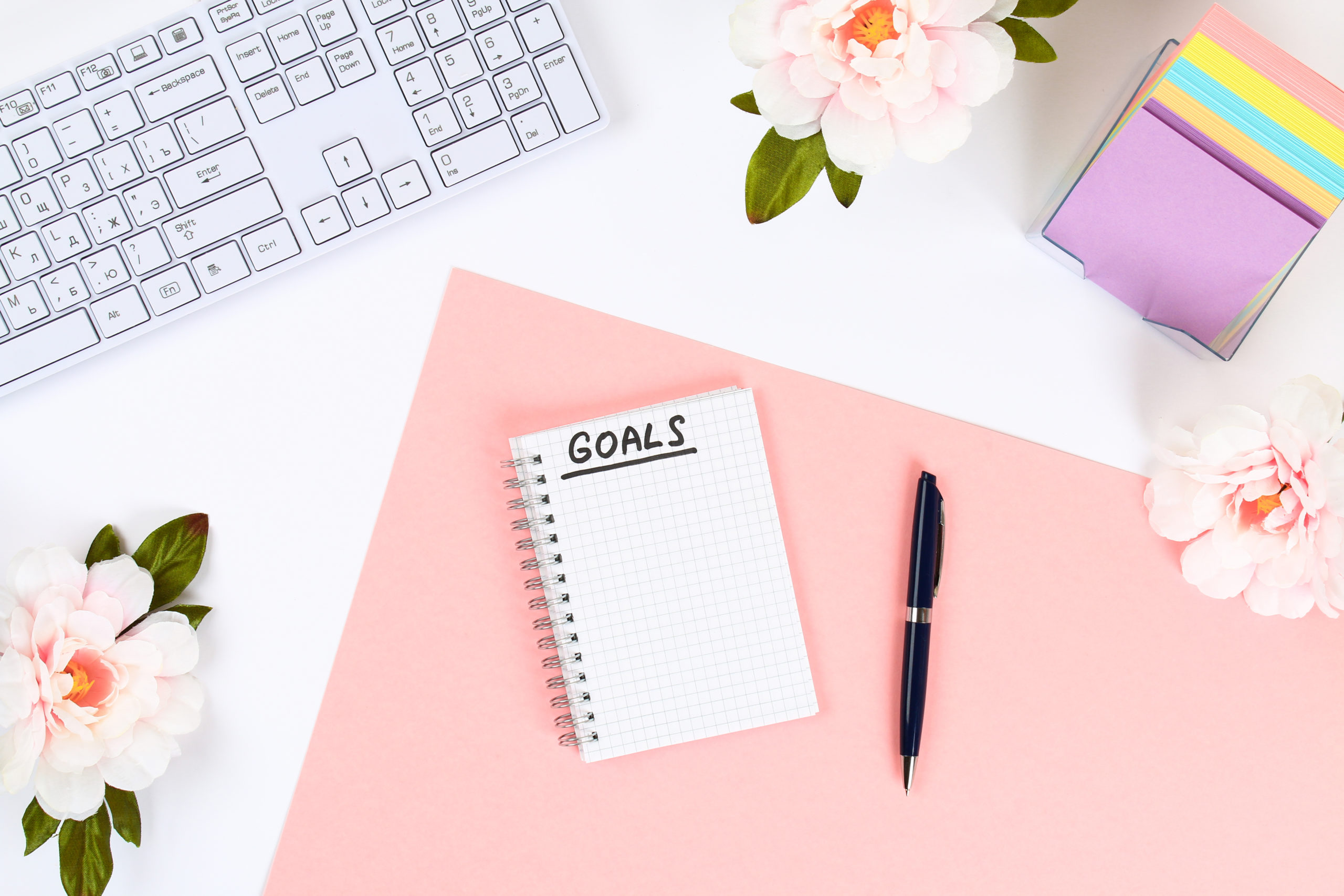
In a world that often emphasises the value of social connections, there’s an important distinction to be made between being alone and feeling lonely.
Many people associate solitude with a sense of isolation or sadness, but the truth is that being alone can be a fulfilling and rejuvenating experience. 😊
In this blog post, I will explore the nuances of being alone versus feeling lonely, understanding the importance of solitude, and embracing the positive aspects of both states.
Let’s get to it. 💕
The Difference Between Being Alone and Feeling Lonely:
Being Alone:
Being alone is a state of physical solitude, where you find yourself without the company of others. It can occur by choice or as a natural consequence of circumstances. Spending time alone provides an opportunity for self-reflection, relaxation, and personal growth.
It allows you to engage in activities that bring you joy, pursue hobbies, or simply enjoy a moment of peace. Being alone can be a deliberate choice, a time to recharge and connect with oneself. 🥰
Feeling Lonely:
Loneliness, on the other hand, is an emotional state that arises from a perceived lack of meaningful connections. It’s possible to feel lonely even in a crowded room if the connections are superficial or unfulfilling.
Loneliness is often characterised by a sense of emptiness, isolation, or a longing for deeper human connections. It’s a complex emotional experience that can impact mental and physical well-being. 😟

Embracing the Positive Aspects of Being Alone:
1. Self-Discovery:
Being alone provides an opportunity for self-discovery. It allows you to explore your thoughts, feelings, and interests without external influences. Use this time to reflect on your goals, values, and aspirations. Self-discovery is a crucial aspect of personal growth and can lead to a deeper understanding of oneself.
2. Independence:
Embracing solitude fosters independence. When you’re comfortable being alone, you become more self-reliant and less reliant on others for your happiness. This independence can empower you to make decisions based on your own needs and preferences, leading to a more authentic and fulfilling life. 🥰
3. Creativity:
Solitude often sparks creativity. When you’re alone with your thoughts, you have the mental space to generate new ideas, think critically, and engage in creative pursuits (yaay). Many artists, writers, and innovators find inspiration in moments of solitude, leading to the creation of meaningful and impactful work. 🎨
4. Rest and Rejuvenation:
Being alone allows for rest and rejuvenation. In a world filled with constant stimuli, taking time for solitude can be a form of self-care. It provides an opportunity to relax, recharge, and focus on activities that bring you peace and joy, contributing to overall well-being.

Addressing the Challenges of Feeling Lonely:
1. Cultivating Meaningful Connections:
If loneliness arises from a lack of meaningful connections, focus on cultivating relationships that nourish your soul. Seek out individuals who share your values and interests. Join clubs, organisations, or communities where you can meet like-minded people. Focus on getting yourself out there. Quality connections are often more fulfilling than a large social circle. 🫂
2. Volunteering and Giving Back:
Engaging in volunteer work or contributing to your community can alleviate feelings of loneliness. By helping others, you not only make a positive impact on the world but also connect with individuals who share a common purpose. Volunteering provides a sense of belonging and fulfillment.
3. Seeking Professional Support:
If loneliness becomes a persistent and overwhelming emotion, maybe consider seeking professional support. A therapist or counselor can provide guidance and a safe space to explore the root causes of loneliness. Addressing these issues with professional help can lead to a more fulfilling and connected life. 🫶
Finding Balance:
The key to a fulfilling life lies in finding a balance between being alone and fostering meaningful connections. Embrace solitude as a time for self-discovery, creativity, and rejuvenation. At the same time, actively cultivate relationships that bring joy and fulfillment. Recognise that both states are essential for a well-rounded and satisfying life. 💕
Conclusion
Being alone and feeling lonely are two distinct experiences, each with its own set of opportunities and challenges. Embracing solitude allows for self-discovery, independence, creativity, and rest. However, if loneliness creeps in, it’s crucial to address it by cultivating meaningful connections, volunteering, or seeking professional support. You are not alone. ❤️
Understanding the nuances between being alone and feeling lonely empowers you to navigate both states with intention and purpose. Ultimately, finding a balance between solitude and social connections contributes to a rich and fulfilling life. Embrace the positive aspects of being alone, foster meaningful connections, and savor the journey of self-discovery in this beautiful dance between solitude and companionship.
Pin this post for a reminder 📌 👇

Related Blogs
Things to Say “No” to for you to Live a Happier Life
How to Stop Settling For Less Than You Deserve
How to Become the Best Version of Yourself: A Guide For 20-Somethings
We all want to succeed in life and reach our goals, but many of us are held back by a fear of failure. This fear can manifest itself in different ways: we may become anxious when faced with challenging tasks, procrastinate on important tasks, or even avoid taking risks altogether.
But the truth is that fear of failure is something that we can overcome, as these fears are formulated in our minds. By learning to be more mindful and developing the right strategies, we can start to unlock our potential and achieve our goals. 🫶
In this blog post, I’ll explore what the fear of failure is and why we have it, as well as share some strategies for overcoming your fear and unlocking your potential.
What is Fear of Failure?
Fear of failure is an emotional response that can arise when we are faced with a task or situation that we believe we may not be able to complete successfully. 😟
This fear can be triggered by a wide range of situations, from taking a test or starting a new job to making an important decision or taking on a new challenge.
When we feel that we may not be able to succeed in a certain task, we can experience a range of emotions including anxiety, fear, and even shame. This fear of failure can be so powerful that it can prevent us from taking risks, trying new things, and achieving our goals. 🙃
Recognising that failure is a normal and necessary part of personal growth and learning is essential. Learning from failures and using them as opportunities for improvement can help individuals cope with and eventually overcome this fear.
It’s important to remember that failure is not a reflection of a person’s worth, but rather a stepping stone on the path to success and personal development.

Reasons You Might Be Afraid of Failure
There are a number of reasons why we might be afraid of failure. One common reason is that we are afraid of disappointing others, especially if they have high expectations of us.
Another reason is that we may be worried about how we will be viewed by others if we fail. 👀
It is also possible that we may have experienced some form of failure in the past and feel that we are not capable of succeeding in the future.
We may also be afraid of failure because we believe that if we fail, we will not be able to move forward and achieve our goals.
Strategies to Overcome the Fear of Failure
Now that we have explored what fear of failure is and why we have it, it’s time to look at some strategies for overcoming it. Here are some tips for tackling your fear of failure and unlocking your potential:
Develop a Growth Mindset
One of the most effective ways to overcome the fear of failure is to develop a growth mindset. This involves looking at failure not as an end, but as an opportunity to learn and grow.
A growth mindset encourages us to take risks, embrace challenges, and look for ways to improve. It allows us to view failure as a learning experience and an opportunity to become better. 🤗
Take a look at our Personal Growth Bundle to find out more.
Visualise Success
Visualising success can be a powerful tool for overcoming fear of failure. Visualising ourselves succeeding can help us to be more confident, reduce anxiety, and take the first steps towards achieving our goals.
It is important to remember that visualising success does not mean that you will definitely succeed, but it can help you to build the confidence and motivation to take risks and move forward. 😀
To help with visualisation it would help to have a vision board. You can do this year by year or have an overview of the life you are trying to create. – Pinterest would be a great place to start with ideas.

Break Your Goals Into Smaller Steps
When we have a goal that we want to achieve, it can often seem like an insurmountable task. This can be overwhelming and can lead to fear of failure.
To help combat this fear, it is important to break your goals into smaller, achievable steps. This can help to make the task seem more manageable and reduce the fear of failure. 😊
Want to become a master at setting goals? Check out our mini-course: How to Set Goals and Achieve Them

Accept That Failure is Part of the Process
It is important to remember that failure is part of the process of achieving your goals. Failure does not mean that you are not capable of achieving success, it either means that you have not found the right path yet or you just need to keep going. 🛣️
Don’t get me wrong, sometimes knowing when to quit and when to keep going can be hard. You have to think to yourself, am I going to regret this? or is this the best decision I can make for myself right now?
Accepting that failure is part of the process can help you to stay motivated and keep trying. It can also help to reduce the fear of failure and give you the confidence to take risks and try new things. 😊
Reach Out for Support
Reaching out for support can be a powerful tool for overcoming fear of failure. Talking to family, friends, and mentors can help to remind us that we are not alone and that there are people in our lives who are willing to help us. All you have to do is ask! 🗣️
Having a supportive network can also provide us with encouragement and motivation to keep going, even when we feel like giving up.

Celebrate Your Small Wins
It is important to celebrate our small wins and successes, no matter how small they may seem. Celebrating our successes can help to boost our confidence and remind us that we are capable of achieving our goals. Because you are! 🏆
It is also important to remember that failure does not define us; it is a part of the learning process. Acknowledging our successes, no matter how small, can help to keep us motivated and remind us that success is possible.
Conclusion – Unlocking Your Potential
Fear of failure can be a powerful emotion that can hold us back from achieving our goals. But with the right strategies, we can start to overcome our fear and unlock our potential.
By developing a growth mindset, visualising success, breaking our goals into smaller steps, accepting that failure is part of the process, reaching out for support, and celebrating our small wins, we can start to move forward and achieve our goals. 🎯
So don’t let your fear of failure stand in the way of your success. Start to take small steps today and unlock your potential!
Pin this post for a reminder 📌 👇

Related Blog
Things to Say “No” to for you to Live a Happier Life
How to Stop Settling For Less Than You Deserve
How to Become the Best Version of Yourself: A Guide For 20-Somethings
Wondering how to be productive from home? Working from home gives you the opportunity to focus on your projects and tasks without the usual distractions that you can face in the office.
However, this can also backfire if you’re not productive and don’t have the self-discipline to sit down and do the work needed while you’re at home. 🖥️
The balance of being productive at home takes some effort, but it is possible with the right tricks up your sleeve. Working from home offers many perks including a reduction in commuting time and spending more time with your loved ones.
There will be days when you prefer to stay in pajamas all day, or press that alarm clock 3 times but allowing these bad habits to accumulate will make a big difference in your productivity and standard of work over time. ☹️
Even though working from home may seem like it would be less stressful and less taxing, it comes with its own set of challenges.
Working from home is a dream for so many people, but can also present some challenges.
How do you stay productive? 🤔
How do you keep your work life separate from your home life? 🤔
How do you tackle loneliness or isolation? 🤔
How can you make sure that working from home actually helps you succeed and not just make it harder? 🤔
Working from home doesn’t have to be more challenging than working in an office. If you put in the effort and take some simple measures, it can be much more beneficial than anything else.
Here are some ways to make your life easier when working from home:
Set Up a Workspace
A workspace is more than just a spot to put your laptop. It is a place where you can clear your head, focus your energy and get things done.
If you work from a home office, you’ll likely have plenty of space to choose from. If you don’t, you may have to get creative.
If you have room for a standing desk, this can be a great option for those who have back issues and like to do some stretches when they work. It may not be the best option for those with leg pain, though. 😂
You may also want to consider setting up a designated workspace in a spare bedroom or another quiet corner of your house.
There are a few tips to keep in mind when you’re setting up your workspace. First, make sure you have enough lighting. You don’t want to be struggling with dim lights.
Next, you’ll need a comfy place to sit. Make sure you are sitting upright and are not hunched over or slumped down in your chair. Check that you can’t be distracted by anything on your desk and put your phone on silent when you’re meant to be in the zone. 📱
These small adjustments can make a big difference in your productivity.

Don’t Check Emails First Thing in the Morning
Resist the urge to check your emails first thing in the morning. 🙅♀️
You’ll want to check in on your team and projects but don’t do it right away. Instead, set yourself up for success by setting a daily schedule. Start your day with a quick review of your to-do list and calendar.
If you are working on a large project, you may want to spend some time writing out a plan of action. This can help you stay on track during the day without being distracted by emails.
When you have a set schedule in place, you’ll find that it is easier to ignore the temptation of checking your inbox the first moment that you have a free moment.
You’ll be less likely to let your emails distract you from your main goals for the day. 😌
Dedicate Time To Your Biggest Tasks
Think about the tasks you have on your list that take the most time then break up your day into smaller chunks of tasks.
These are the ones you should be dedicating more time to. Whether you have a big project coming up or you’re just trying to get caught up with work, you’ll need to schedule time for these tasks and make them a priority. ⌛
Find a place on your calendar or checklist where you can mark down the tasks that you want to get done. This will help you stay on track without feeling like you’re trying to do too much at once.
If you have kids or other family members who live with you, take the time to really consider when they need attention and when you’ll have the most uninterrupted time to focus on your tasks. 👨👩👧
For example, if you have younger kids who are in school during the day, you’ll want to focus on your tasks then than in the evenings when they’re home and need your attention.

Utilize Productivity Tools
There are a couple of tools that can help you stay organized and focused throughout the day.
✨ Calendar
Make sure you have a calendar where you can note down important events, appointments and tasks for each day.
✨ To-Do List
A to-do list can help you stay focused on the items that need to be completed each day.
✨ Digital Notebook
You can also use a digital notebook to track your thoughts and ideas as you think them throughout the day. This is a great option for those who like to write things down.
✨ Headphones
If you are working from home and have noisy neighbours, you might want to invest in a pair of headphones. 😂
✨ Social Media Timer
You may want to set a timer so that you aren’t spending too much time on social media throughout the day. Those Tik Tok dances can wait a while longer.
RELATED: Learning how to be productive at home doesn’t need to be hard! Check out our Goals & Planners Bundle to help keep you organised.
Hold Yourself Accountable
You may want to consider joining a productivity challenge or forming a productivity partnership with a coworker, friend or family member.
You can hold each other accountable by sharing ways that you are trying to improve your productivity and ways that you are getting more done. 😁
You might also want to consider setting a goal for how many hours or tasks you want to complete each day.
This can help you focus on getting things done and staying productive throughout the day.

Set Times For Work and Leisure
If you dont want to get on the road to burnout then you MUST schedule in breaks.
Make sure that you have set times for when you will work and when you will cut off your work for the day. This may be helpful if you are easily distracted or have a lot going on in your life.
Working hard and setting a strict schedule for your work time can help you stay focused, but you also need to set aside time for leisure and relaxation. 🛀
This will help you stay balanced and let off some steam, which can make you even more productive in the long run.

GRAB YOURSELF OUR FREE SELF-CARE BUNDLE!
It’s time to take some time out for yourself love! Check out this four-page bundle of self-care goodness that you can use to relax, refresh and rejuvenate. You deserve it sis.
Pop your info in and download your bundle now ❤️
How to Be Productive at Home – Conclusion
Working from home can be a dream come true for many people. However, it also comes with challenges and additional pressures.
The best way to overcome these challenges is to be prepared and have a solid plan in place. There will be days when you prefer to stay in pajamas all day long, but there are a few ways to make your life easier and more productive while working from home.
You can set up a workspace, don’t check emails first thing in the morning, and dedicate time to your biggest tasks. Utilize productivity tools, hold yourself accountable, and set times for work and leisure. With the right tricks up your sleeve, working from home can be incredibly rewarding and easy. 💕
Pin this post for a reminder 📌 👇

Related Blogs
The Top 10 Ways to Improve Your Productivity
When you research ways to improve your productivity 9 times out of 10 it’s related to your work life, strapped to a desk and how to get the most out of the 8 hours you’re there…
but what about your personal life? 🙃
Staying productive can be a mentally hard task as life is full of constant distractions. Just the other day I was writing a blog post called The top daily habits of successful people and I heard the beautiful words “ THE PIZZA IS HERE! 🍕” coming from downstairs and I got up off my chair like my life depended on it and ran.

I ended up not doing anything for the next two hours due to the constant distractions from leaving my desk which messed up my plan for the day.😑
Did that pizza taste amazing? Of course it did. Was it worth messing up my schedule? Probably not. Don’t get me wrong, I’m not saying don’t eat or exclude yourself from everything, just have a plan in place to be as proficient as possible.
Here are my top 10 ways to help you improve your productivity to stay on track and get the best out of your day.
1. Introduce “the 5-second rule” into your life
The 5-second rule was created by Mel Robbins who said “ If you have an instinct to act on a goal, you must physically move within 5 seconds or your brain will kill it”
The moment you feel the instinct to act on a goal or a commitment use the rule. She says “ When you feel yourself hesitate before doing something that you know you should do count 5-4-3-2-1 GO and move towards the action.
Who has ever laid in bed and said that they’re going to get up in the next 2 minutes but 20 minutes go by and you’re still in the same position scrolling through your phone? (I’m going to guess that you’re shifting your eyes right about now) 👀
Whenever I find it hard to get out of bed I use this 5-second rule and it has never failed me, so I urge you to try it whenever you need that little extra boost to get up and go do what needs to be done.
2. Minimize interruptions
You go to sit down at your desk to start your daily tasks and your phone rings, you take a quick glance to see who it is but you’re determined to stay focused so you make it ring out.
You put your headphones on to help keep you focused but all you hear is your stomach grumbling and the pings from the notifications on your phone and laptop.
You finally give in to the temptations and get distracted and put the majority of the things you were going to do that day till the next.
Then you feel like crap and can’t find the motivation anymore. 🤷♀️
This is not the way to go. ❌
The best way to minimize interruptions is to take some proactive steps to avoid them.
Here are a few examples:
👉 Close the door while you’re working.
👉 Schedule in beaks
👉 Tell people that you’re busy and only to disturb you if there’s an emergency.
👉 Turn your phone off and give it to someone to hide it from you until you are done.
👉 Get rid of the clutter around your space.

3. Take regular breaks
The rejuvenation you feel after taking a break enables you to complete your tasks more accurately, leading to fewer errors and making you feel more refreshed.
There are good breaks and bad breaks. Good breaks (every 60-90 minutes, however, this is debatable depending on what you’re doing): reduce mental fatigue, boost brain function and help us stay focused for longer periods of time. 😌
Taking excessive breaks (also known as bad breaks) makes you lose momentum as it will take more than twice as long to accomplish anything by dragging out the day with unnecessary breaks.
4. Prioritize your tasks ahead of time
It’s always best to plan your day the day before so that you can better manage your time from the start of the day till the end Instead of spending time in the morning thinking about everything you’ve got to do and feeling overwhelmed.
Figure out your most important task that NEEDS to get done and write out 2-3 sub-tasks that can help you get ahead.
Need some help with prioritising your day? Check out our Goals & Planners printable bundle to help keep you productive.
Prioritising allows you to identify your most important tasks which enables you to give those tasks more of your attention, energy and time.
Prioritised work is productive work!

5. Get enough sleep
Sleep plays an important role in your physical health and is important for various aspects of brain function.
Having a good amount of sleep has been shown to improve problem-solving skills and enhance memory function, however, a poor amount of sleep has been shown to impair brain function.
The first barrier to productivity is insufficient sleep. 😴
Waking up to no energy makes you react slower and have little to no concentration. (you’re basically a walking zombie).
Sleep deprivation takes its toll on us physically, mentally and emotionally. The amount of sleep you need varies between ages but the average sleep you need as an adult is between 7-9 hours a night. 🛌
6. Learn to say NO
One of the biggest problems people find with being productive is getting interrupted by other people with their requests.
“Hey, can you read over this article for me today?”
“Hey, can you walk my dog for me? I’m a bit busy”
“Can you come over and help me revise?”
Learning to say no can be difficult for quite a few of us, especially if you have a nurturing and easy-going personality and always want to people please.
One of the difficulties of saying “No” is knowing how to say it politely without offending the other person.
Here are a few tips on how to say No:
👉Keep your response simple (be firm but direct)
👉Ask for more time before committing to the request.
👉Provide an alternative.
👉Compliment them for asking you but let them know it’s not for you.
Related: Things to say No to for you to live a happier life
Heather’s top tip: Remember, you don’t have to justify your No. Resist the temptation of having to explain why you don’t want to do something.
Your time is your greatest asset. Don’t waste it trying to people please and spend it doing more of what you love.

7. Prioritise your most urgent work first
Similar to tip number 4 which was to prioritise your work ahead of time. It’s even more important to follow through on what you wrote down! 😂
First, work out which tasks are urgent and which tasks are important.
Urgent tasks are things you need to deal with right away, such as submitting a paper first thing in the morning before the deadline. While important tasks are ones that contribute to your long-term goals and values.
How you start your day sets the tone for the rest of it. So, tackling your urgent tasks and then your important tasks out the way first thing gives you the energy and inspiration to keep moving forward. 💪
8. Organise your work environment
By keeping your workspace organized you save time by not looking for things you need which can hinder efficiency.
I dread to remember the countless times I used to spend looking for pens only to realise they were under a mountain of folders and books! 🙄
An organized workspace encourages you to be productive, reduces work-related stress and you’ll know what you have and what you don’t have before you start work.
When you establish an efficient workplace, you establish structure.

9. Stop Multitasking
Multi-tasking greatly reduces your efficiency. We millennials are known for being able to juggle a million things at once from being able to switch our attention from one technology to another.
The more tasks you have, the more mistakes you’re likely to make. According to Standford research, multitaskers are terrible at filtering out irrelevant information, so you’re doing a lot of work but producing little results.
Identify your most important tasks to get done for the day and then simply work on them one at a time.
Even though it may seem like multitasking is saving you time, that’s not usually the case. This is because you’re not giving each task the time and attention it needs which can lead to sloppy work being re-done or edited. 😬
✨ To do your best work, single task! ✨

10. Move around
Have you ever tried to stop your eyes from closing, your head from dropping to the side and ultimately falling off your chair? This is a common occurrence, especially with mundane tasks which we all have to do now and then.
After every 60 minutes of work move around for 15 minutes. What you do in those 15 minutes is up to you. Whether you want to do some push-ups, run up and down the stairs or just simply walk to the fridge and get a snack. 🍇
Sitting down for long periods of time has a negative effect on your health. Your body adapts to the reduced physical demand and slows down its metabolism.
When your metabolism slows down you burn fewer calories and boost the chance that extra energy will be stored as fat. This is why it’s important to have breaks but to also move around in those breaks. 🏃♀️
These are my top 10 ways to help you improve your productivity to get successful results in whatever tasks and goals you want to accomplish.
What habits do you have that keep you productive? Let me know in the comments!
Pin this post for a reminder 📌 👇

Related Blogs
The power of setting goals and objectives
Are you currently living your life on autopilot and not getting much done? If so, you need to re-evaluate your daily routine.
A routine is a set of habits we develop as a daily practice. Whether you realise it or not, you already have many routines that you do on a daily basis. Whether it’s getting out of bed at a certain time every day or watching your favourite program in your favourite chair at the same time every day.
However, if you don’t take time to analyse each of your routines (morning, afternoon and evening) to see if they bring you closer to your goals then chances are, you’re not going in the right direction.
Having no routine or structure in your life is so much more draining mentally, physically and emotionally than not having a routine at all. Why waste your time figuring out what to do each day, when you can create a routine tailored to your wants and needs?
Lets explore what a good daily routine consists of and how to create an ideal routine that suits you.
First, as you know a routine means: A routine is a sequence of actions that you do repeatedly.
Brushing your teeth and washing your face with your fancy skincare products is a routine. Waking up at 6:30am and going out for a run is a routine. Purchasing hot chocolate from Starbucks on your journey to work is a routine. These actions happen repeatedly and create a rhythm in your daily life.
Why should you create a routine?
Establishing a productive routine is both a self-investment and a way to do your best for the rest of the world.
“In the right hands a routine can be a finely calibrated mechanism for taking advantage of a range of limited resources: time (the most limited resource of all) as well as willpower, self-discipline, optimism. A solid routine fosters a well-worn groove for ones mental energies and helps stave off the tyranny of moods”
Mason Currey
Managing your day allows you to feel more in control. Who likes having their day dictated by other people? I know I sure don’t. You’ll feel more energised and productive with a routine that you know is progressing you further in life. This in turn will help you be more proactive and in control in the face of a stressful situation.
Your routines prime you for success. They help you achieve more than you would by “winging” your day. All it takes is discipline.
Here is a list of actions you should take to help create the best daily routine
1. Make your bed every morning
If there’s one habit you should adopt in your life it’s making your bed every day. Here is some advice from Navy Seal Admiral William H. McRaven:
“If you make your bed every morning, you will have accomplished your first task of the day. It will give you a small sense of pride, and it will encourage you to do another task and another. By the end of the day that one task completed will have turned into many tasks completed.
Making your bed will also reinforce the fact that the little things in life matter. If you can’t do the little things right, you’ll never be able to do the big things right. If by any chance you have a miserable day, you will come home to a bed that is made – that you made. A made bed gives you encouragement that tomorrow will be a better day. “
As Charles Duhigg said in “The Power of habit” – Certain keystone habits can trigger other positive behaviours. If you can change a step in your unhealthy habits you can gear your life to building healthier patterns.
Making your bed doesn’t necessarily mean you’ll have better productivity, but it can lead to a healthier overall mindset.

2. Reflect on your achievements
It’s easy to lose sight of achievements made after a long day. Taking a few moments before you jump into bed to reflect and celebrate your wins big or small puts you in a grateful and happy mindset before you go to sleep. Reflecting on these achievements puts things into perspective and gives you the encouragement to carry on the same flow for the next day.
Reflecting also gives you a better understanding of what’s working and what’s not. This then allows you to make better decisions and change habits that are not beneficial for you. Each time you improve, it helps build your confidence with increased knowledge and perspective.
You can reflect in a number of ways such as jotting it down in a notebook, writing in your gratitude journal and you can also track your productivity with a number of apps such as: “Productive – Habit Tracker, “ Forest” and “ Wunderlist”.
3. Recite affirmations
Affirmations are positive statements that you use to reframe how you think about yourself and the outcome of the future. They are a good way of visualising the good things that will come to you and overcoming negative self-talk.
Affirmations make an impression on your subconscious mind, allowing you to be in alignment with what you want to accomplish. This makes it easier to be in the right mindset before you start your day and when you’re ready to go to bed.
The way you choose to think, day in and day out is just that – a choice. Choose daily positive thinking and watch how differently you see your life.
4. Have a proper breakfast
Breakfast provides the body and brain with fuel after an overnight fast – which is where its name originates from, breaking the fast! Starting the day running on empty is equivalent to trying to drive a car with no petrol.
I HAVE to have breakfast in order for me to have a productive day. Nothing worse than trying to get some work done and your stomach is just grumbling away!
Eating a good breakfast is amazing for your health, as research shows that those who eat breakfast are less likely to be overweight and more likely to be in their ideal weight range compared to people who skip breakfast. If you skip breakfast, you’re more likely to reach for high sugar and fatty snacks mid-morning to get your energy boost.
Probably the most appealing benefit Is that breakfast jumpstarts your metabolism and thus helps you burn more calories during the day. When you eat breakfast, you’re telling your body that more calories are coming throughout the day. When you skip breakfast the message your body gets is that it needs to conserve rather than burn any incoming calories.
5. Clean your home
When you start your day, the last thing you want to see is mess all around you. Without regular clean-up sessions you’ll find your environment in disarray.
Spending 10-20 minutes each day tidying up reduces the stress of having regular deep cleaning days. While it sometimes seems impossible to manage everything on your plate, there are some quick and easy tips to help you get your house in order.
1. Put everything away after use
2. Focus on one room at a time
3. Do the dishes after every meal
4. Set a timer so you don’t procrastinate
5. Do a load of laundry daily
6. Give everything it’s own space to live
7. Make your bed as soon as you wake up
8. Keep basic cleaning supplies close to where you use them
6. Exercise
Even though exercise can happen at any time of the day, many experts suggest that the morning is the best time to take part in physical activities. Exercising in the morning is a great way for helping the body jump-start your metabolism and burned stored fat.
A general recommendation is to exercise 30 minutes each day, this amounts to only 2% of your day! Exercising is a no-brainer when it comes to what you should incorporate into your daily routine. Is it going to be easy? Nope. Is it going to be worth it, absolutely!
Start thinking today about how you’re going to incorporate exercise into your daily routine. If you already do, think about how you can start mixing it up. Keeping things fresh keeps your mind engaged, making you less likely to give up.

7. Read
Becoming an avid reader was one of the best things I’ve done for my creativity and mental wellbeing. The first book I ever read for my personal growth was The Power of Habit by Charles Duhigg. It was this book that started my daily reading habit and would urge anyone who wants to learn more about habits to read that book!
A daily dose of reading can do wonders for your relationships, health and memory.
Want your vocabulary to improve? Read
Want to develop your self-discipline? Read
Want to boost your IQ? Read
Pick up a book today and spend a minimum of 15 minutes reading. Get yourself in a nice comfy area with a hot cup of tea and let your imagination loose.
8. Spend time with family/friends
One of the best ways to combat stress is to spend time with your loved ones. The smiles, the belly-aching laughter, the sincere joy that you feel when they’re around is what you should aim to feel daily.
Who are you thinking about right now as you’re reading this? Give them a call or text to meet up later or during the week and have a good laugh. You deserve to enrich your life with positive and encouraging people around you.
Don’t underestimate the power of having a solid support system around you. It makes going after your goals even easier and allows you to celebrate your wins both big and small with the ones that matter most.
In Summary
Following a daily routine can help you establish priories, keep track of goals, limit procrastination and make you healthier. It helps lower your reliance on self-discipline and motivation due to the repeated action causing the right habits to be formed.
Since creating and following a routine of my own, I have more drive and motivation which makes reaching my goals a lot easier. I show up every day with more mental and physical energy which get me through my tough days.
Remember: What works for someone else, might not work for you. This is why it’s vital to pick activities that resonate the most with you and put you on the path to task and goal completion. The key is to create regular and consistent daily patterns that will take you to where you want to go in life, helping you maximise yourself on every possible level.
There is a whole module in the How to set goals and achieve them mini-course dedicated to creating your ideal 24 hours! Learn how to create a morning, afternoon and evening routine that gets you closer to completing your life-changing goals. Don’t wait any longer to get what you want out of life. You are deserving of that dream life. Let me help you get started > How to set goals and achieve them mini-course
Related blogs:
How to improve your life one day at a time
I can’t be the only one that has numerous amounts of notebooks, planners and journals that include daily, monthly and yearly goals that are scattered everywhere… can I? 🤔
Well, I can definitely say, that lack of organisation life is far behind me and I recite and look at my goals daily to remind myself why I work so hard. Ultimately it reminds me of my purpose.
Now I want you to be completely honest with yourself.
Do you write your future goals down and reflect on them daily to remember why you do what you do?
If not, why?
Is it because you see writing goals down as pointless because life has a habit of slapping you in the face every time you make a little bit of progress? Or is it because you’re scared to write what you really want to achieve because you don’t want to get your hopes up in case you fail? 😬
These points are excuses I’ve heard in the past (yes you read that right, excuses) and they end up crippling the person with anxiety because they have no clue which direction to go in and feel stuck. Not to mention the added pressure of knowing that their family and peers are ahead of them in the core areas of their life.
Does this sound like you?
Well my friend you’re in luck because in this blog post I’m going to give you the low down on all things goals and objectives and the positive impact it will have on your future. By the end of this post, you’ll learn how to set S.M.A.R.T goals and use them to your advantage. 😁
There’s a reason why high achievers in all fields set both big and small goals and use objectives to achieve those goals.
Without knowing what you want to achieve you’ll lack focus and attention which can make life feel like a chaotic whirlwind. Want to know how to eliminate this process? Learn how to set goals and achieve them.
How? You ask
Well, let me show you. 😌
INTRODUCING… How to set goals and achieve them mini-course
The “How to set goals and achieve them” mini-course is designed to get you from idea to execution with all the tools in-between.
Goal setting helps us to create and visualise our desired destination in life. Could you imagine your life without goals?
🤔What would motivate you to get out of bed?
🤔What would drive you to work on yourself?
🤔What would be the purpose of doing anything?
Sounds scary huh? But that’s not what you’re about. You’re about creating a life for yourself that you envision every day. You just need a little help getting there.
Throughout this mini-course, you will learn practical exercises that will provide you with all the essential tools you need to start making positive changes to your life.

Let me give you an overview of what you’re going to learn:
Module 1: Small steps big changes
What small actions can you take every day that will help you complete your goals faster and more efficiently? Sign in to find out more 😉
Module 2: Small steps big changes. – implementation week
Put what you’ve learned from module 1 into action by implementing these small changes into your day so that these small actions can turn into daily habits.
Module 3: Daily routine
Learn how to create a morning, afternoon and evening routine so that you have an intentional plan on how to turn your dreams into reality.
Module 4: Daily routine implementation week
Let’s see how your daily routine works out in the real world.
Are you excited as I am right now? (ahhhh) 😀
Get the complete rundown and enroll in the mini-course by clicking the button below
Okay, now let’s get back to the rest of this blog.
So, what’s the actual difference between goals and objectives?
Goals are long-term achievements that are future-focused but don’t include the actual steps needed to accomplish that said goal. For example, a personal goal could be “be more confident in myself” which is a great goal, but it doesn’t outline how you’re going to achieve it.
An objective for the goal could be “I’m going to do one thing that brings me out of my comfort zone every day for the next 30 days to gain more confidence in myself”. This objective sets out one of the ways to help achieve your goal.
Just stating what you want without planning out the steps is pointless. You’re essentially just making a wish that you hope will someday come true without doing much about it. 🙃
You’ll forever be disappointed and feel unaccomplished if you never do what you say you’re going to do. You will eventually stop believing in yourself which will result in lower self-esteem.
So to help stop all of that from happening let’s dig deep into how to set S.M.A.R.T goals. It’s a strategy I use in both my personal life and business life and it works wonders.

How to set S.M.A.R.T goals?
After establishing your goals you need to bring structure and trackability to them, if not, you’re more likely to not act on them or even worse, forget about them.
S.M.A.R.T goal setting allows you to have clear milestones and an estimation of the goal’s attainability. Think of the plan as creating a series of objectives that will ultimately allow you to accomplish your goal.
To make your goals S.M.A.R.T it needs to be: Specific, Measurable, Achievable, Realistic and Timely. 😌
This is where we get to the core of what you actually want to achieve, the more descriptive and specific you are the more likely you are to get there.
S.M.A.R.T goal setting clarifies the difference between “ I want to make more money” and “ I want to earn £15,000 a month by next year July through my current passive income channels”. See the difference?
You can be even more specific than that. What are your passive income channels and how much money do you want to make from each one? The deeper you dig the more you understand your current situation and the steps you need to take in order to live your best life. 😊
Specific: What is the specific goal you’re trying to accomplish?
✨ Where will I accomplish it?
✨ How will I accomplish it?
✨ When will I accomplish it?
✨ Are there any limitations?
✨ Why do I want to achieve this goal?
✨ Are there other routes I can take to achieve the same goal?
Measurable: Are you able to measure your goal?
How can you measure your success and know when you’ve accomplished your goal?
This is can be only based on facts and usually stated in terms of quality, quantity, time or cost.
For example, if you’re goal was to lose 1 stone in 2 months and you never weighed yourself at the start of the two months you wouldn’t be able to know if you achieved your goal or not. 😶
Trackability in goal setting is important as you can keep track of the progress you’re making toward your goal. It always helps if you’re able to keep a journal to write notes on your progress.

Achievable: Is your goal achievable?
This is where you break your goal into smaller steps and list every step as your goal needs to be realistic and attainable in order to be successful. When you set an achievable goal, you may be able to identify previously overlooked opportunities that can even bring you closer to it.
Ask yourself these questions:
✨ How can I accomplish this goal?
✨ How realistic is this goal based on limiting factors such as finances?
✨ Are there factors beyond my control that need to be considered?
Realistic: Is reaching your goal relevant to you? How realistic is it?
Do you actually want to lose 1 stone? Do you really want to be more self-disciplined?
If you lack skills in certain areas to achieve your goals start planning to get training to boost your confidence in that area to make your goals more realistic to achieve.
Also, remember to reflect on your daily routine when setting goals. Setting a goal of waking up at 4am when you regularly go to bed at 1 am isn’t really going to work long-term. 🤷♀️
Ask yourself these questions:
✨ Why do you want to reach this goal?
✨ What is the objective behind the goal?
✨ Is this the right time?
✨Will this goal truly achieve what you want it to?
Time-Bound: When do you plan on completing your goals?
Every goal needs to have a deadline as it makes most people switch to action, if you don’t have a deadline the likelihood of you ever achieving that goal is pretty slim. 🙃
It will become one of those “ I’ll work on it later” goals that we all fall victim to but in the end we know it never gets done.
So, let’s say a big fat NO to those type of goals and slap a deadline on it and show it who’s boss. A time-bound goal usually consists of these questions:
✨ When does the goal need to be completed?
✨ What could you do each day to get you closer to your goal?
✨ Are my deadlines realistic?

Using this S.M.A.R.T method is an effective way to provide you with focus, clarity and the motivation needed to achieve your goals.
It’s time to ditch the vague and unrealistic goals that aren’t getting you anywhere in life and replace them with detailed, achievable, and intentional goals that help you get from A to B.
The top benefits of setting goals and objectives:
👉 Accomplishing the goal will lead to personal satisfaction and further motivation and dedication to complete further goals.
👉 Goals help motivate us to develop strategies and become more resourceful which will enable us to perform at the level needed to achieve that goal.
👉 When you set goals you are actively thinking about what you want/need which helps break you out of autopilot, allowing you to become more intentional with actions that align with your values.
👉 What gets measured gets improved. Tracking where you were from the beginning to your current situation will show you the progress (or relapse) you’ve made.
This vital information gives you a greater indication of what your next step should be. (+ If you have made progress remember to celebrate it! If you’ve relapsed, look at what went wrong and what you can do to move forward. Don’t beat yourself up about it 😊)
👉 Having goals gives you a laser beam focus on what you should spend both your TIME & ENERGY on (two things you definitely don’t want to waste) this helps eliminate low-impact tasks that contribute basically nothing to your vision.
Did you know you’re 42% more likely to accomplish a goal if it is written down? Doing this allows you to visualise the goal, see how you will achieve it and what steps you need to take in order to get there, so get all those goals out of your head and into a journal!
Heather’s top tip: Learning to be resourceful will set you up for achieving the goals that you think are unattainable given your current circumstances. Resourcefulness is a mindset that can drive you to find ways to solve problems and see the bigger picture.
It gives you the ability to visualise all the possible ways to achieve what you truly desire. Repeat to yourself: “I am not my current circumstances, I can have the life that I want”. 💕
“It’s not about achieving the goal. It’s about who you have to become in order to achieve the goal. The juice is in the growth”.
Tony Robbins
Are you now ready to start writing awesome goals and smash them out? Let me know in the comments what you’re working on!
Pin this post for a reminder 📌 👇

Related Blogs
How to raise your standards and live your best life
Everything you need to know about habits
How to create the best daily routine
.
Did you know that people on my email list sometimes get exclusive discounts on my products? Join the community and save yourself some coins!
Freshly-squeezed inspiration, and no-nonsense tips + tricks to improve your life delivered to your inbox weekly.
Subscribe to my newsletter
Subscribe
You're all signed up!
Be sure to whitelist our email address so that all the goodies make it to your inbox.




